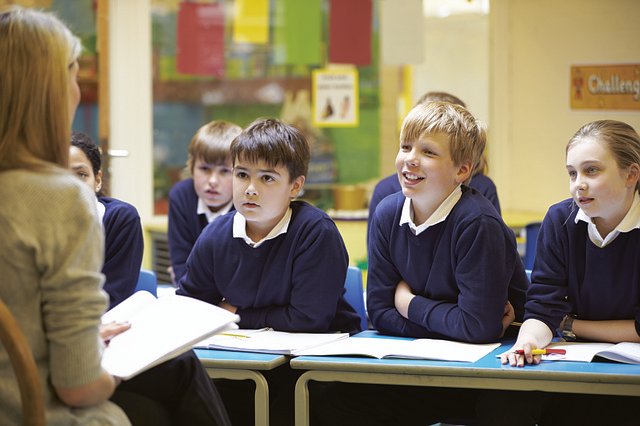Suzanne Graham is fascinated with the teaching and learning of foreign languages, which has been the focus of most of her research. Her work has influenced the training of teachers, the teaching methods used in schools and universities, and curriculum and assessment development at a national and international level. She is now combining this with her other interest in literature and exploring how the use of literature and different teaching approaches influences second language learning.
Understanding language learning
How do we learn a language? Suzanne Graham, Professor of Language and Education at the University of Reading, investigates how learners make sense of what they read or hear in a foreign language, and how teachers can support their learning. Before she began this work she studied French, German, Latin and Russian herself and became a language teacher, which sparked her curiosity in the process of language learning.
Early in her academic career Professor Graham analysed motivation levels among several hundred 16-to-19-year-olds who were learning French. Her study provided evidence of a relationship between students’ understanding of how to improve their learning, their confidence in their own ability, and their motivation to continue language study.
Professor Graham went on to explore ways to improve strategies for learning French listening skills. She also examined how secondary school teachers thought about second-language listening, and how they taught it to Key Stage 3 (11-14 year old) pupils. Professor Graham embedded the outcomes of this research in a set of Principles for Practice which she developed, along with supporting materials and tools. These are now helping teachers learn how to develop students’ listening skills in a more effective, research-informed way.
Now Professor Graham is leading the Language Learning strand of the Creative Multilingualism research programme; a large interdisciplinary venture involving several universities and partner organisations. Her own research for the programme is on Linguistic Creativity in Language Learning. It focuses on the development of literacy skills in foreign language, and learners’ motivation for and conceptions of language learning. For example, do people learn better when asked to give creative, personal and emotional responses than when they simply concentrate on grammar and vocabulary? Does this kind of teaching change learners’ levels of creativity? This ambitious project will, she says help us to gain an enhanced understanding of the creative dimension of linguistic diversity, and the contribution it makes to our creative potential as human beings.
Fast facts
- More than 700,000 primary school teachers have used ‘The Language Magician,’ an assessment tool developed from Professor Graham’s research.
- Professor Graham’s research findings have been viewed more than 60,000 times by language practitioners from over 140 countries.
- Professor Graham’s work has resulted in changes to GCSE and A level frameworks, improving learning for thousands of students in the UK.

